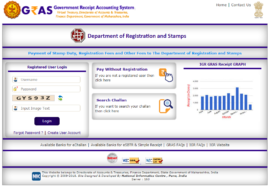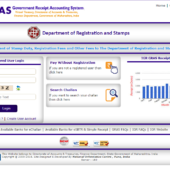Documents Required for Buying a Property

List of Documents Required to Buy a Property in India
Planning to buy a property? Well, get ready for a major paperwork as the process involves providing (to authorities and the bank in case you are taking a home loan) and acquiring several documents (this ensures your ownership over the property). For most people, buying a home is more than just a dream. An individual spends a significant chunk of their life working towards purchasing a home. The home buying process, however, can be trickier in reality, especially if one is a first time home buyer. The type of documents required varies depending on the type of property you wish to buy.
This article, therefore, serves as a home buyers’ guide for those of you involved in the home buying process for the first time.
1) The Sale Deed
The Sale Deed is an essential legal document which contains evidence of the sale and the transfer of property from the builder to the individual. Many times years after buying a home, the individual may want to sell the house for some reason, in which case, this document is essential. The sale deed is usually executed before the sale agreement and after the compliance of the terms and conditions detailed in the sale agreement as agreed to by the individuals concerned.
2) Property Chain Deed
The Property Chain Deed is an important document which traces the ownership of the property. This document is generally required by banks when a buyer avails a loan against the property. An individual may approach the local authorities for help while creating this document.
3) The Sale and Purchase Agreement
The Sale and Purchase Agreement contains a list of terms and conditions that are agreed to by both the buyer and the seller. An excellent example of this would be the negotiation for the price of the flat. The agreement would contain the agreed amount of the flat by both – the buyer and the seller.
4) The Building Approval Plan
Before the commencement of construction, the builder is required to get the necessary sanctions under the provisions of the Building Bylaws, Master Plan and Local Body Acts. This sanction involves two factors
A) The Building Plan and
B) The Layout Approval. One mistake that first time home buyers often make is not ensuring that the builder meets the terms and conditions of the Building Plan and Layout Approval before buying the house. Not meeting the terms and conditions could end up in negative results if the local authorities come in for spot checks, which are quite common in newer buildings.
5) The Possession Letter
The Possession letter is a document made by the builder stating the date of the buyer’s possession of the property. This document is made in the builder’s name and is created post the receipt of the Completion Certificate. This letter, however, is not proof of one’s ownership of the property. For that, the home buyer needs to get an Occupancy Certificate.
6) The Completion Certificate
The Completion Certificate (or the Occupancy Certificate) is a document which states that the building has been inspected upon completion and follows all the laws under the municipal corporation or the local development authority. This document is required to avail utilities such as water supply, electricity supply and the drainage system. It is not advisable for first time home buyers to buy a property without the Completion Certificate as without it the building is deemed illegal and can result in a penalty or can even lead to eviction. It is possible, however, for the buyer himself/herself to approach the municipal corporation and ask for a Completion Certificate in case the builder fails to get one.
7) The Khata Certificate
A Khata is essentially a revenue document that contains details of the property, such as size, location, area that it is built upon etc. to pay property taxes. It is also a form of identification and is required when taking a home loan. It is vital to make sure that the Khata Certificate is a part of the home buying process because it is needed to apply for the electricity and water supply.
8) The Allotment Letter
An Allotment Letter is crucial if you plan on booking a home which is currently under construction. It includes all the details regarding the payment of the flat and any extra fees that you may have to make for any additional facilities. This letter is vital when it comes to getting a loan from the bank as it mentions the amount that is required to be paid by the buyer.
9) Encumbrance Certificate
An encumbrance certificate is required to prove that the property does not have any pending legal dues or mortgages. This is one of the key documents banks ask for before they grant you a loan. This certificate also has all the details related to the transactions happened over a period of time. In India, a Form 15 is issued if a property has any encumbrance registered; otherwise, a Form 16 will be given to the owner, stating there are no encumbrances.
10) Copy Of Building Plan
A buyer must acquire a copy of the building plan approved by the statutory body to establish that the construction of the property is legal and is done according to set rules and regulations.
11) No-Objection Certificates (NOC)
There are as many as 19 NOCs that have to be acquired by a developer from different authorities while building a housing project. However, the number may vary according to specific state rules. Ask your developer to provide you the copies of these NOCs, and keep it in your personal record.
12) Payment Receipts & Property Tax Receipts
Collect original payment receipts from the developer if you are buying a new property. If you are buying a resale property, ask for a copy of receipts from the seller to be produced to the bank. Property owners have to pay taxes. Ensure that the previous occupier/owner had paid property taxes and there are no pending due. Property tax receipts also help in proving the legal status of the property.




